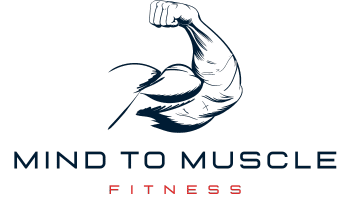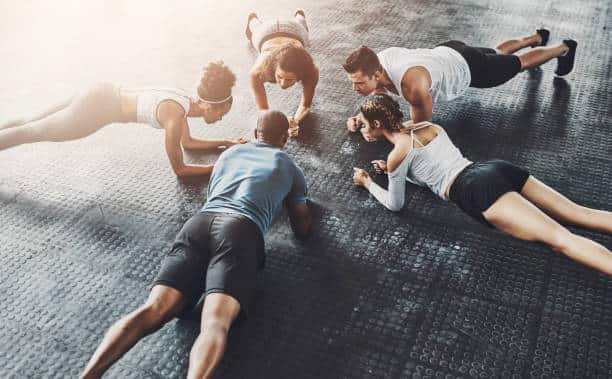
Top Calisthenic Ab Exercises for Core Strength
Did you know that a strong core can boost your overall strength by as much as 30%? That’s right! Calisthenic ab exercises are a powerful tool in the pursuit of a well-defined midsection and enhanced overall fitness.
What makes calisthenics so effective? It’s all about leveraging your body weight to build core strength without needing fancy gym equipment. Whether you’re at home or enjoying the great outdoors, these exercises are both adaptable and efficient.
In this guide, we’ll explore some of the top calisthenic ab exercises, ranging from beginner-friendly moves to advanced challenges. Each exercise is designed to maximize your core strength and help you move closer to those six-pack abs.
So, are you ready to transform your core and elevate your fitness? Let’s get started!
Why Calisthenics is Great for Core Strength
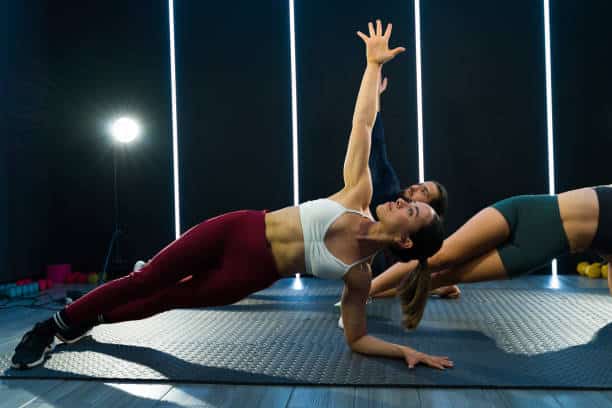
When it comes to building core strength, calisthenics deliver impressive benefits. Unlike traditional gym workouts that rely on equipment, calisthenics leverages bodyweight exercises, making them highly adaptable and perfect for workouts anywhere.
One of the key advantages of calisthenics is the boost in functional strength. These exercises replicate real-world movements, which enhance your agility and balance—crucial for both everyday tasks and athletic performance.
Calisthenic exercises engage multiple muscle groups at once, fostering overall core stability. Moves like planks and leg raises don’t just target your abs; they also work your lower back, obliques, and glutes. This all-encompassing approach to core training is challenging to match with isolated gym machines. Additionally, calisthenics back exercises such as pull-ups and superman holds play a crucial role in improving posture and building a strong, resilient back. These functional movements emphasize balance and coordination, enhancing your body’s ability to perform daily tasks efficiently. By integrating calisthenic routines into your fitness plan, you create a well-rounded program that promotes strength, flexibility, and real-world functionality.
Moreover, calisthenics contributes to the imperative that you concentrate on foundational core workouts if you are beginning your fitness quest. Now, let’s start with some basic exercises that develop the core from the ground up.
By strengthening your core, you support your spine and reduce the risk of back pain. The dynamic nature of these exercises helps build both strength and flexibility, leading to improved posture and a lower chance of injury.
Basic Calisthenic Ab Exercises for Beginners
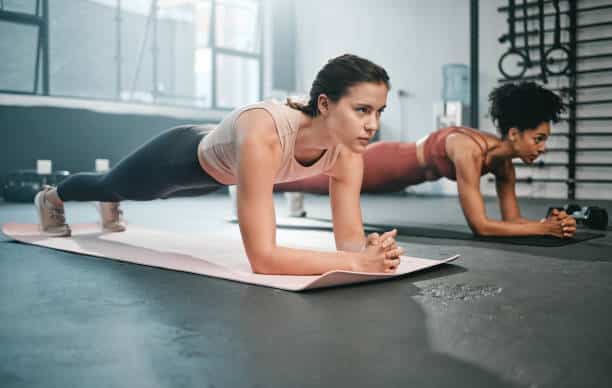
If you are on your fitness journey, focusing on foundational core exercises is essential. Let’s do some beginner workouts that build the core from the ground up.
Plank
A great exercise to strengthen your entire core is the plank. Planks are quite beneficial because they are easy to use and efficient. Here’s hoHere’sxecute a flawless plank:
- Start by lying face down on the ground.
- Raise your body using your forearms and toes, keeping a straight line from head to heels.
- Hold this position, ensuring your hips don’t get too high.
- Begin with 20-30 seconds, gradually increasing your duration as you build strength.
Leg Raises
Leg raises are another fantastic exercise for targeting the lower abdominal muscles. Here’s the leg raise technique:
- Lie flat on your back with your legs straight and hands by your sides.
- Slowly lift your legs towards the ceiling, keeping them as straight as possible.
- Pause when your legs are perpendicular to the ground, then lower them slowly.
- Repeat for 10-15 reps, focusing on control and avoiding the use of momentum.
Leg raises and planks are two essential exercises for building a strong core. Including these movements in your beginning workouts can help you progress to more difficult workouts in the future.
| Exercise | Target Area | Duration/Reps | Beginner Tip |
|---|---|---|---|
| Plank | Full Core | 20-30 seconds | Keep a straight line, avoid sagging hips |
| Leg Raises | Lower Abs | 10-15 reps | Lift slowly, control the movement |
Intermediate Calisthenic Ab Exercises
You’re poured into advancing now that you have the fundamentals. Now, some intermediate calisthenics that will test your oblique and core muscles. These workouts accelerate your progress and help you reach your fitness objectives.
Hanging Knee Raises
Hanging knee lifts are a great way to progress your core. Using both hands, grasp a pull-up bar to begin. Make sure your shoulders are pushed back slightly and that your hold is solid. Breathe out as you slowly raise your legs toward your chest, maintaining a braced core throughout. Return your legs to the beginning position by lowering them carefully.
Here’s a comparison of the benefits:
| Benefit | Description |
|---|---|
| Core Strengthening | Engages the full range of abdominal muscles. |
| Grip Strength | Improves grip, which is essential for various exercises. |
| Flexibility | Increases flexibility in the hip flexors. |
Always maintain proper form to prevent injuries. Incorporate knee raises into your routine for balanced core development.
Russian Twists
Russian twists are a fundamental exercise for targeting the obliques and enhancing core strength. To perform this move, start by sitting on the ground with your knees bent and feet slightly elevated. Hold a weight or medicine ball close to your chest, lean back slightly to engage your core, and begin the exercise by rotating your torso to the right, bringing the weight beside your hip. Then, twist to the left.
This rotational exercise is fantastic for building overall core strength. By focusing on your obliques, Russian twists help ensure balanced muscle engagement, which is essential for core development.
Incorporating these intermediate calisthenic moves into your workout routine not only ramps up the intensity but also adds variety to your exercises. This variety is key to avoiding plateaus and keeping your motivation high. Just remember, the secret to effectiveness is consistency and maintaining proper form!
Advanced Calisthenic Ab Exercises for Pros
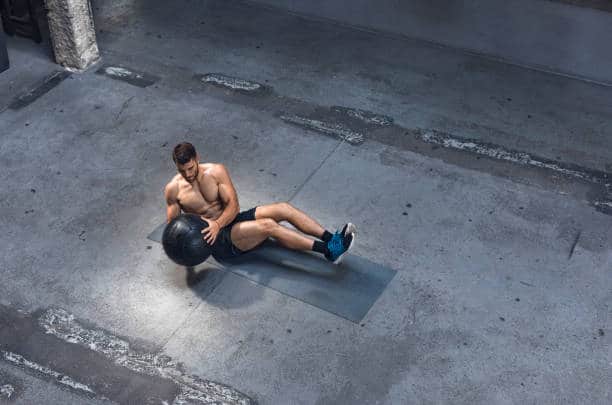
For those who have conquered intermediate calisthenic exercises, it’s important to challenge yourself with advanced core workouts that push your limits and refine your fitness. These exercises are not just about strength but also require a high degree of stability and endurance, marking important milestones in your fitness journey.
One standout advanced move is the front lever. This exercise demands impressive core stabilization as you hold your body parallel to the ground while gripping a bar. It’s a full-body workout that intensely engages both your abs and back muscles, pushing your core strength to the next level.
Another formidable exercise is the planche hold. This move requires both extraordinary upper-body strength and exceptional core control. By lifting your entire body off the ground using only your hands, you engage multiple muscle groups. The planche hold is a comprehensive test of your overall fitness and control.
These advanced calisthenic exercises aren’t about raw power; they’re measuring balance and precision. They demand dedication and consistent practice, but the rewards are significant. As you advance, you’ll see substantial improvements in your overall calisthenic skills and fitness level.
Here’s an overview of these advanced core exercises to help you compare and incorporate them into your training routine:
| Exercise | Target Muscles | Key Benefit |
|---|---|---|
| Front Lever | Core, Back, Shoulders | Enhanced Core Stability |
| Planche Hold | Core, Shoulders, Arms | Improved Balance |
| Human Flag | Core, Shoulders, Arms | Increased Full-Body Control |
By including these workouts in your regimen, you’ll be able to challenge yourself and reach new heights of peak fitness. As always, to maximize your calisthenic advancement, pay close attention to form and consistency.
Getting the Most Out of Your Calisthenic Ab Exercises
To get the most out of your calisthenic ab exercises, you need to grasp important concepts and methods. Focusing on the appropriate form, increasing resistance, and getting enough rest will improve the effectiveness of your workouts and your overall growth.
Proper Form
Maintaining proper form during exercise is essential to avoiding injuries and getting the most out of your workout. Always maintain control over your motions by using your core. Fewer reps with flawless form are preferable to more reps with subpar form. This method lowers the danger of strain while increasing exercise efficiency.
Progressive Overload
According to the overload concept, you should progressively increase the intensity of your workouts in order to keep pushing your muscles. This can be accomplished by increasing the number of repetitions, sets, or workout variants. By following this technique, you can make sure that your muscles are continuously working, which will result in steady progress.
Rest and Recovery
Exercise alone is not as crucial as rest and recovery. Your muscles can’t grow if you don’t get enough rest. Include recuperation advice like getting adequate rest, drinking plenty of water, and doing gentle exercise on your days off. By doing this, you can sustain long-term fitness gains and prevent burnout.
Creating a Balanced Calisthenic Workout Routine
Crafting a balanced workout plan involves more than just selecting a series of exercises; it’s about creating a well-rounded regimen that targets every muscle group and promotes overall fitness. By incorporating calisthenic ab exercises alongside routines for the upper body, lower body, and cardio, you build a comprehensive fitness strategy.
One effective approach is to alternate focus areas throughout the week. For instance, combine core exercises like planks and leg raises with upper body movements such as push-ups and lower body exercises like squats. Then, follow up with a day dedicated to cardio, like running or jumping rope. This rotation not only maintains workout variety but also helps prevent muscle fatigue and lowers the risk of injury.
Consistency is crucial for achieving results. Establish a regular workout schedule to stay on track, starting with shorter sessions and gradually increasing the duration and intensity as you progress. Regularly tracking your progress and making necessary adjustments will keep you moving forward and improving.
Rest and recovery are equally important. A balanced workout plan should include time for your body to recover and rebuild. Proper rest is essential for muscle repair and growth, making sure you avoid overtraining and reduce the risk of injuries.
By integrating ab exercises with a diverse range of calisthenic movements, you’ll have a more complete and effective workout routine. This holistic approach ensures that you work for all muscle groups, support overall fitness, and keep your training engaging and productive.
FAQ
What are the top calisthenic ab exercises for core strength?
Planks, leg raises, and hanging knee raises are a few of the best calisthenic ab exercises for strengthening the core. These bodyweight exercises can be performed in almost any place and are excellent for enhancing different areas of your core.
Why is calisthenics beneficial for core strength?
Calisthenics improves functional strength, core stability, and posture, among other aspects of core strength. These exercises offer a thorough workout that improves balance and agility since they work several muscle groups at once.
What are some basic calisthenic ab exercises for beginners?
I suggest beginning foundational exercises like leg lifts and planks for beginners. While leg raises target the muscles in the lower abdomen particularly, planks serve to enhance overall core stability.
What are some intermediate calisthenic ab exercises?
Once you have mastered the fundamentals, you can go to more advanced exercises, such as Russian twists and hanging knee lifts. Russian twists are a terrific way to focus the oblique muscles, and hanging knee raises are a great way to engage your complete core.
What advanced calisthenic ab exercises would you recommend for pros?
Advanced movements like front levers and planche holds can be very challenging for very experienced practitioners. It takes extraordinary strength, stability, and endurance to do these exercises.
How can I ensure I’m getting the best out of my calisthenic ab exercises?
Focus on keeping perfect form, using the concepts of progressive overload, and making sure to include enough rest and recovery in your regimen in order to get the most out of your calisthenic ab workouts. This will guarantee steady advancement, assist in minimizing injuries, and reduce burnout.
How do I create a balanced calisthenic workout routine?
Combining lower body, upper body, and aerobic activities with a range of calisthenic ab exercises is the key to creating a well-rounded fitness program. Maintaining consistency is essential, and to guarantee general well-being, it’s critical to approach exercise holistically.
